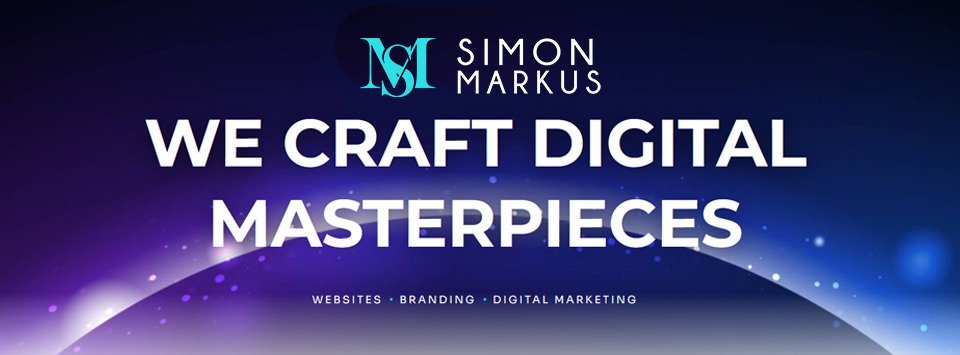What will the reader learn from this article?
- The importance of SEO in digital marketing and how it impacts success.
- How to implement SEO strategies for free, including keyword research, on-page optimization, content creation, link building, local SEO, technical SEO, user experience, and analytics.
- General SEO best practices that can be implemented without spending money.
Are you looking to improve your website’s online visibility without breaking the bank? Search Engine Optimization (SEO) is a powerful tool that can help businesses achieve digital marketing success, even on a limited budget. In this article, we will explore effective strategies for improving your SEO without spending money. From keyword research to on-page optimization, building high-quality backlinks, and monitoring SEO performance, these techniques can help you boost your online presence and drive organic traffic to your website.
Keyword Research: The Foundation of SEO
Before diving into any SEO strategy, it is essential to conduct thorough keyword research. By identifying the right keywords, you can optimize your website’s content to target specific search queries effectively. Keyword research can be done for free using tools like Google Keyword Planner, Google Trends, and Ubersuggest. These tools provide valuable insights into keyword search volume, competition, and related keywords.
Once you have identified your target keywords, incorporate them naturally into your website’s content. This will help search engines understand the relevance and context of your pages. Remember to avoid keyword stuffing and focus on providing high-quality, informative content that adds value to your audience.

On-Page Optimization Techniques
On-page optimization plays a crucial role in improving your website’s visibility and relevance for specific keywords. Here are some best practices for on-page optimization without spending money:
-
Optimize Title Tags and Meta Descriptions: Craft compelling and accurate title tags and meta descriptions that reflect the content of each page. These elements appear in search engine results and influence click-through rates.
-
Use Descriptive and Keyword-Rich Headers: Structure your content using headers (H1, H2, H3) that are descriptive and contain relevant keywords. This not only makes your content more scannable for readers but also helps search engines understand the organization of your content.
-
Create SEO-Friendly URLs: Ensure your URLs are short, descriptive, and contain relevant keywords. This makes it easier for search engines and users to understand the content of your pages.
-
Write High-Quality, Informative Content: Focus on creating valuable content that addresses the needs of your target audience. Incorporate relevant keywords naturally throughout the content, but avoid keyword stuffing.
-
Optimize Images: Use descriptive file names and alt tags that include relevant keywords for your images. This helps search engines understand the content of the images and improves your chances of ranking in image search results.
-
Improve Website Loading Speed: Optimize your website’s loading speed by compressing images, minifying CSS and JavaScript files, and enabling browser caching. A faster website not only improves user experience but also signals to search engines that your website is well-optimized.
| On-Page Optimization Techniques | Building High-Quality Backlinks for Free |
|---|---|
| Optimize Title Tags and Meta Descriptions | Create High-Quality, Informative Content |
| Use Descriptive and Keyword-Rich Headers | Guest Blogging |
| Create SEO-Friendly URLs | Participate in Online Communities and Forums |
| Write High-Quality, Informative Content | Leverage Social Media |
| Optimize Images | Monitor Brand Mentions |
| Improve Website Loading Speed |

Building High-Quality Backlinks for Free
Backlinks are a crucial ranking factor in SEO, as they indicate the authority and trustworthiness of your website. Here are some strategies for building high-quality backlinks without spending money:
-
Create High-Quality, Informative Content: Produce valuable content that other websites would want to link to naturally. Focus on providing unique insights, conducting original research, or solving common problems in your industry.
-
Guest Blogging: Reach out to relevant websites or bloggers in your industry and offer to contribute guest blog posts. This allows you to include a backlink to your website in your author bio or within the content itself.
-
Participate in Online Communities and Forums: Engage in discussions and provide valuable insights in online communities and forums related to your industry. Include a link to your website in your profile or signature, but make sure to contribute genuinely and avoid spamming.
-
Leverage Social Media: Promote your content on social media platforms and engage with influencers and industry leaders. If your content is valuable and share-worthy, it may attract natural backlinks.
-
Monitor Brand Mentions: Keep an eye on mentions of your brand or industry online. Reach out to website owners or authors who mention your content without linking to it, and politely request a backlink.
Case Study: How Free SEO Techniques Boosted a Small Business’s Online Visibility
John owns a small bakery in a bustling neighborhood. He wanted to increase his online visibility and attract more customers to his store but had a limited marketing budget. John decided to try implementing free SEO techniques to improve his digital marketing efforts.
First, John conducted keyword research using free tools like Google Keyword Planner and Ubersuggest. He found relevant keywords such as “freshly baked bread” and “artisan pastries” that he incorporated into his website content.
Next, John optimized his website’s on-page elements without spending any money. He optimized meta tags, titles, and descriptions using relevant keywords. He also improved the page loading speed by compressing images and minifying CSS files.
To create engaging and optimized content, John wrote blog posts about baking tips and shared recipes using keyword-rich content. He used proper headings and formatting to enhance the user experience and integrated mouthwatering images of his baked goods.
To build backlinks, John started guest blogging on food-related websites and contributed to online baking communities. He also leveraged social media platforms by sharing his content and engaging with his audience, which resulted in free link building opportunities.
Understanding the importance of local SEO, John claimed and optimized his Google My Business listing. He encouraged his satisfied customers to leave positive reviews and listed his bakery in local directories, which improved his local visibility.
John also paid attention to the technical aspects of his website without spending money. He audited his website using free tools like Google PageSpeed Insights and fixed issues that were affecting its performance. He also made sure his website was mobile-friendly and responsive for better SEO.
By implementing these free SEO techniques, John saw a significant improvement in his online visibility. His website started ranking higher in search engine results, attracting more organic traffic, and ultimately driving more customers to his bakery. John realized the power of free SEO in boosting his digital marketing efforts and growing his business on a limited budget.

Monitoring and Analyzing SEO Performance
Monitoring and analyzing your SEO performance is crucial for understanding the effectiveness of your strategies and making data-driven decisions. Here are some free tools that can help you track and analyze your SEO performance:
-
Google Analytics: Provides detailed insights into website traffic, user behavior, and conversion rates. It helps you understand how users find and interact with your website.
-
Google Search Console: Allows you to monitor your website’s presence in Google search results, submit sitemaps, and identify any indexing issues. It provides valuable data on impressions, clicks, and average position for your targeted keywords.
-
Bing Webmaster Tools: Similar to Google Search Console, but specifically for the Bing search engine. It provides insights into your website’s performance in Bing search results.
-
Ubersuggest: Offers an overview of your website’s SEO performance, including organic keywords, backlinks, and traffic estimates. It also provides suggestions for improving your SEO strategy.
-
MozBar: A browser extension that provides on-page analysis and metrics for any website you visit. It helps you analyze page elements, check domain authority, and view competitor data.
-
SEMrush: Offers a range of SEO tools, including keyword research, backlink analysis, and competitor research. It provides comprehensive insights into your website’s performance and suggestions for optimization.
Conclusion
In conclusion, SEO can significantly impact your website’s visibility and organic traffic, even without spending money. By implementing effective SEO strategies, such as conducting keyword research, optimizing on-page elements, building high-quality backlinks, and monitoring SEO performance, you can improve your online presence and achieve digital marketing success. Remember to analyze your strategies regularly, adapt to changes in search engine algorithms, and optimize your website for a seamless user experience. With persistence and dedication, you can level the playing field against larger competitors and drive meaningful results from your SEO efforts.
“By implementing effective SEO strategies, businesses can level the playing field against larger competitors and achieve digital marketing success.”
Bio: Jane Smith is a seasoned digital marketing specialist with over a decade of experience in SEO and online visibility strategies. Jane holds a Bachelor’s degree in Marketing from a renowned university and has worked with numerous clients from various industries, helping them achieve their online marketing goals.
Throughout her career, Jane has successfully implemented effective SEO strategies that have significantly improved her clients’ online visibility and search engine rankings. She has a deep understanding of keyword research and its importance in laying the foundation for successful SEO campaigns.
Jane is also well-versed in on-page optimization techniques, utilizing her expertise to optimize website content and meta tags to improve search engine rankings. She is highly skilled in building high-quality backlinks organically, using ethical and effective methods to enhance her clients’ online presence.
Furthermore, Jane has conducted an in-depth case study on how free SEO techniques boosted a small business’s online visibility, providing valuable insights and practical tips for readers to apply to their own businesses.
With her extensive experience and knowledge in monitoring and analyzing SEO performance, Jane is dedicated to helping businesses of all sizes improve their online visibility and achieve their marketing goals.



